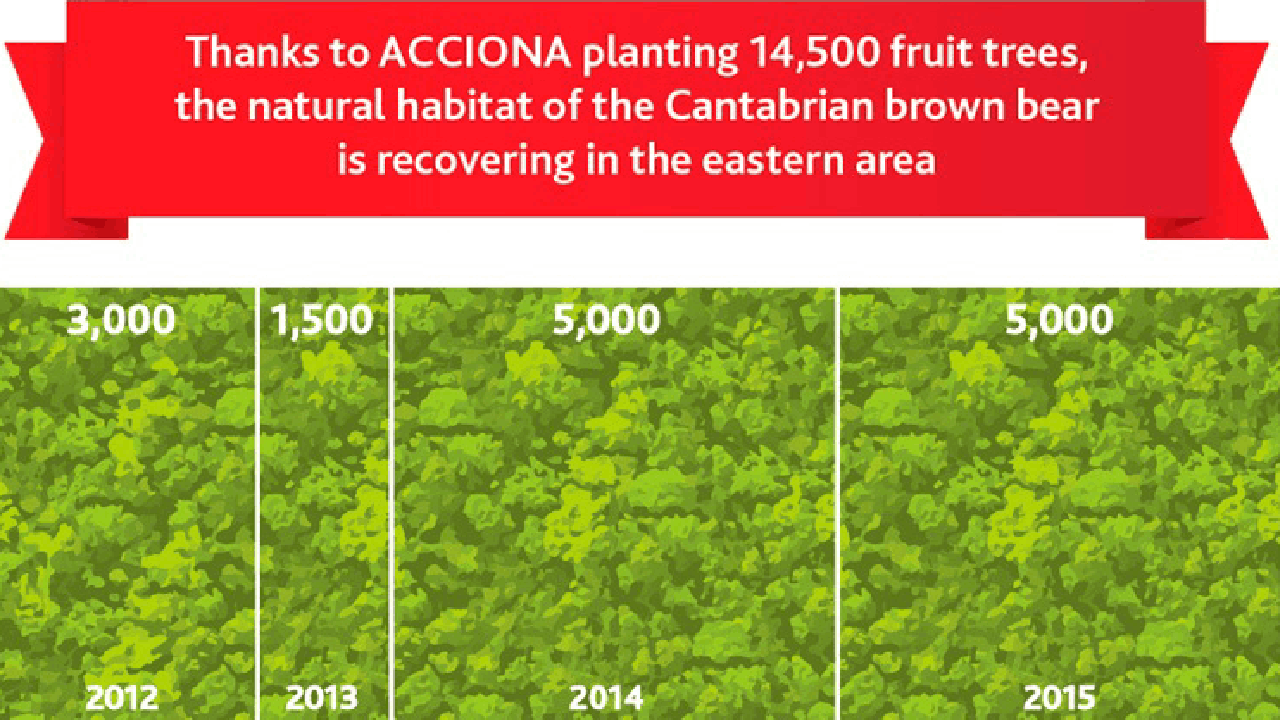Along time ago, my forefathers dominated this land. Our kingdom extended to all the woods and mountains of the Iberian Peninsula, and the bloodline from which we descended moved freely across all Europe.
In the first half of the last century, the Cantabrian brown bear population fragmented into two groups that then lost contact: both physically, through the destruction of the bear corridors that allowed us to move freely throughout the Cantabrian range; and genetically, since we no longer mingled. Our western relatives live in the mountains of Lugo, Leon and Asturias. We, the eastern population, inhabit an area of some 2,100 square kilometers between the forests and mountains of Palencia, Leon, Cantabria and Asturias. Here, we are down to about 40 in number.
The reasons we have been disappearing point to the human being. Deforestation has caused the loss of our habitat and sources of food. Building of roads, ski slopes and other structures, poaching, traps, poison, etc., are all dangers restricting us to our small stronghold and complicating our breeding and survival to the point where our number fell in the 1980s to as few as 20.
Yet, just as hope was running out for us, they arrived. They were humans, too, but they came to help rather than destroy. It was 1992 when the Brown Bear Foundation set up in our area, giving us a voice, protecting us, and our home, and fighting for our very survival.
Since then, both we and our fellows in the western subpopulation, and those who inhabit the Pyrenees, have been able to increase in number, thanks to the protection the Foundation offers us, in collaboration with several local, regional, national and European public entities, and a few private companies. It is one of these companies, ACCIONA, which is restoring our habitat to its old splendor thanks to its Environmental Area.
ACCIONA said it would plant one tree for each employee participating in the company’s Sustainable Mobility Plan. The employee just had to complete a questionnaire calculating the CO2 emissions his or her journeys to and from work resulted in. In this way, the company could work out how much pollution the travel of its employees was causing and include this factor in its provisions for offsetting emissions.
To give this action an added tangible benefit, ACCIONA decided to undertake the reforestation of our land in the Palencia Mountain Natural Park and neighboring Cantabrian range. To date, ACCIONA has planted 14,500 fruit trees (cherry, apple, whitebeam, alder, buckthorn and wild service trees) over the past four years, and these have given us food and guaranteed our survival and that of our young.
Today, we are still only 40, but the ACCIONA Forest permits us to view the future with renewed hope that one day we will return to rule the mountains of the Cantabrian range as our forefathers did many, many years ago.
If you want to know more about ACCIONA’s Environment Area projects you can visit their website.
